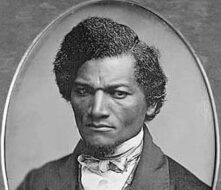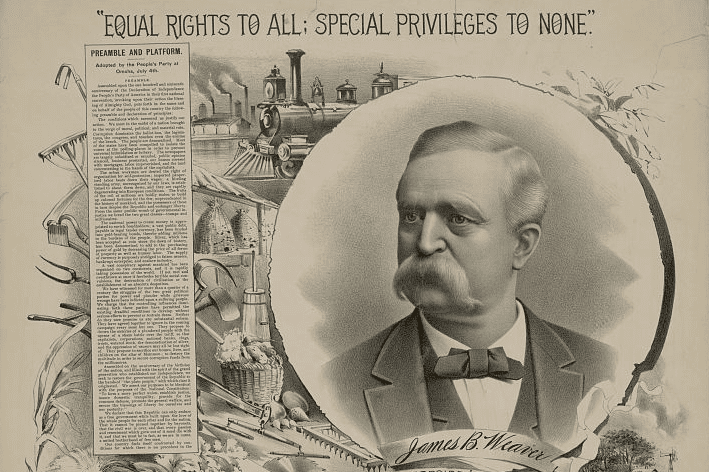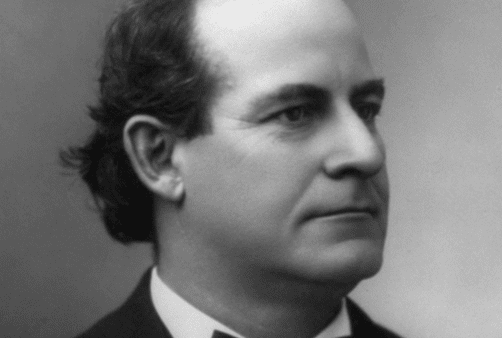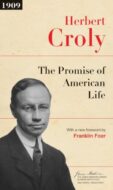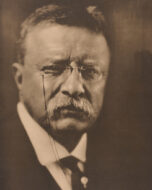


No related resources
Introduction
The Civil Rights Act of 1875 provided that all persons, irrespective of race, color, or previous condition of servitude, “shall be entitled to the full and equal enjoyment of the accommodations, advantages, facilities, and privileges of inns, public conveyances on land or water, theaters, and other places of public amusement.” Violations of the law were punishable by fine or imprisonment. In various cases, operators of an inn, two theaters, and a railway car were indicted for denying the pertinent accommodations to persons of color. Their cases were consolidated upon appeal to the U.S. Supreme Court.
These cases raised a further legal issue, implicit in Representative Elliott’s speech defending this proposed law but not resolved in previous Supreme Court rulings. In the Slaughterhouse Cases, Justice Miller remarked in his opinion for the Court that the Fourteenth Amendment was designed to protect “the newly made freeman and citizen from the oppressions of those who had formerly exercised unlimited dominion over them.” This remark, which in itself did not hold the force of law, left unspecified the identity of the perpetrators of antiblack oppression against whom the amendment was held to be targeted. In section 1 of the Fourteenth Amendment, the various prohibitions are imposed specifically on the states, and in Strauder, the Court ruled unconstitutional an action by a state government. But does a state government violate the Fourteenth Amendment’s equal protection provision only when it commits an act of racial discrimination itself, or would it also violate this provision by permitting private, nonstate enterprises to discriminate by race? That is the question raised in these cases.
In the Civil Rights Cases, the Court ruled the Civil Rights Act of 1875 unconstitutional. In an 8–1 decision (Justice John Marshall Harlan [1833–1911] was the dissenter), the Court majority held that the Fourteenth Amendment protects only against discriminatory actions by state governments, and therefore that the enforcement powers delegated to Congress in section 5 of the amendment do not authorize it to regulate actions by private or nongovernmental actors. In an October 1883 speech on the ruling, Frederick Douglass called it “a blow . . . struck at human progress,” declaring that it “has swept over the land like a moral cyclone.” Nearly three-quarters of a century would pass before Congress would enact another civil rights bill.
Source: 109 U.S. 3 (1883); available at https://www.law.cornell.edu/supremecourt/text/109/3.
MR. JUSTICE BRADLEY1 delivered the opinion of the court.
. . .The first section of the Fourteenth Amendment—which is the one relied on—after declaring who shall be citizens of the United States, and of the several states, is prohibitory in its character, and prohibitory upon the states. It declares that: “No state shall make or enforce any law which shall abridge the privileges or immunities of citizens of the United States; nor shall any state deprive any person of life, liberty, or property without due process of law; nor deny to any person within its jurisdiction the equal protection of the laws.”
It is state action of a particular character that is prohibited. Individual invasion of individual rights is not the subject matter of the amendment. It has a deeper and broader scope. It nullifies and makes void all state legislation, and state action of every kind, which impairs the privileges and immunities of citizens of the United States or which injures them in life, liberty, or property without due process of law, or which denies to any of them the equal protection of the laws. It not only does this, but, in order that the national will, thus declared, may not be a mere brutum fulmen,2 the last section of the amendment invests Congress with power to enforce it by appropriate legislation. To enforce what? To enforce the prohibition. To adopt appropriate legislation for correcting the effects of such prohibited state laws and state acts, and thus to render them effectually null, void, and innocuous. This is
the legislative power conferred upon Congress, and this is the whole of it. It does not invest Congress with power to legislate upon subjects which are within the domain of state legislation, but to provide modes of relief against state legislation, or state action, of the kind referred to. It does not authorize Congress to create a code of municipal law for the regulation of private rights, but to provide modes of redress against the operation of state laws and the action of state officers executive or judicial when these are subversive of the fundamental rights specified in the amendment. . . .
And so, in the present case, until some state law has been passed, or some state action through its officers or agents has been taken, adverse to the rights of citizens sought to be protected by the Fourteenth Amendment, no legislation of the United States under said amendment, nor any proceeding under such legislation, can be called into activity. . . .
An inspection of the law3 shows that it makes no reference whatever to any supposed or apprehended violation of the Fourteenth Amendment on the part of the states. It is not predicated on any such view. It proceeds ex directo4 to declare that certain acts committed by individuals shall be deemed offenses, and shall be prosecuted and punished by proceedings in the courts of the United States. It does not profess to be corrective of any constitutional wrong committed by the states; it does not make its operation to depend upon any such wrong committed. . . .
In this connection, it is proper to state that civil rights, such as are guaranteed by the Constitution against state aggression, cannot be impaired by the wrongful acts of individuals, unsupported by state authority in the shape of laws, customs, or judicial or executive proceedings. The wrongful act of an individual, unsupported by any such authority, is simply a private wrong, or a crime of that individual; an invasion of the rights of the injured party, it is true, whether they affect his person, his property, or his reputation; but if not sanctioned in some way by the state, or not done under state authority, his rights remain in full force, and may presumably be vindicated by resort to the laws of the state for redress. An individual cannot deprive a man of his right to vote, to hold property, to buy and sell, to sue in the courts, or to be a witness or a juror; he may, by force or fraud, interfere with the enjoyment of the right in a particular case; he may commit an assault against the person, or commit murder, or use ruffian violence at the polls, or slander the good name of a fellow citizen; but, unless protected in these wrongful acts by some shield of state law or state authority, he cannot destroy or injure the right; he will only render himself amenable to satisfaction or punishment, and amenable therefore to the laws of the state where the wrongful acts are committed. Hence, in all those cases where the Constitution seeks to protect the rights of the citizen against discriminative and unjust laws of the state by prohibiting such laws, it is not individual offenses, but abrogation and denial of rights, which it denounces and for which it clothes the Congress with power to provide a remedy. This abrogation and denial of rights for which the states alone were or could be responsible was the great seminal and fundamental
wrong which was intended to be remedied. . . .
. . . Whether it would not have been a more effective protection of the rights of citizens to have clothed Congress with plenary power over the whole subject is not now the question. What we have to decide is whether such plenary power has been conferred upon Congress by the Fourteenth Amendment, and, in our judgment, it has not. . . .
But the power of Congress to adopt direct and primary, as distinguished from corrective, legislation on the subject in hand is sought, in the second place, from the Thirteenth Amendment, which abolishes slavery. This amendment declares “that neither slavery, nor involuntary servitude, except as a punishment for crime, whereof the party shall have been duly convicted, shall exist within the United States, or any place subject to their jurisdiction,” and it gives Congress power to enforce the amendment by appropriate legislation. . . .
. . .Conceding the major proposition to be true, that Congress has a right to enact all necessary and proper laws for the obliteration and prevention of slavery with all its badges and incidents, is the minor proposition also true, that the denial to any person of admission to the accommodations and privileges of an inn, a public conveyance, or a theater does subject that person to any form of servitude, or tend to fasten upon him any badge of slavery? If it does not, then power to pass the law is not found in the Thirteenth Amendment. . . .
We must not forget that the province and scope of the Thirteenth and Fourteenth Amendments are different: the former simply abolished slavery; the latter prohibited the states from abridging the privileges or immunities of citizens of the United States, from depriving them of life, liberty, or property without due process of law, and from denying to any the equal protection of the laws. The amendments are different, and the powers of Congress under them are different. What Congress has power to do under one it may not have power to do under the other. Under the Thirteenth Amendment, it has only to do with slavery and its incidents. Under the Fourteenth Amendment, it has power to counteract and render nugatory all state laws and proceedings which have the effect to abridge any of the privileges or immunities of citizens of the United States, or to deprive them of life, liberty, or property without due process of law, or to deny to any of them the equal protection of the laws. Under the Thirteenth Amendment, the legislation, so far as necessary or proper to eradicate all forms and incidents of slavery and involuntary servitude, may be direct and primary, operating upon the acts of individuals, whether sanctioned by state legislation or not; under the Fourteenth, as we have already shown, it must necessarily be, and can only be, corrective in its character, addressed to counteract and afford relief against state regulations or proceedings.
The only question under the present head, therefore, is whether the refusal to any persons of the accommodations of an inn or a public conveyance or a place of public amusement by an individual, and without any sanction or support from any state law or regulation, does inflict upon such persons any manner of servitude or form of slavery as those terms are understood in this country? . . .
After giving to these questions all the consideration which their importance demands, we are forced to the conclusion that such an act of refusal has nothing to do with slavery or involuntary servitude. . . .
When a man has emerged from slavery, and, by the aid of beneficent legislation, has shaken off the inseparable concomitants of that state, there must be some stage in the progress of his elevation when he takes the rank of a mere citizen and ceases to be the special favorite of the laws, and when his rights as a citizen or a man are to be protected in the ordinary modes by which other men’s rights are protected. There were thousands of free colored people in this country before the abolition of slavery, enjoying all the essential rights of life, liberty, and property the same as white citizens, yet no one at that time thought that it was any invasion of his personal status as a freeman because he was not admitted to all the privileges enjoyed by white citizens, or because he was subjected to discriminations in the enjoyment of accommodations in inns, public conveyances, and places of amusement. Mere discriminations on account of race or color were not regarded as badges of slavery. . . .
On the whole, we are of opinion that no countenance of authority for the passage of the law in question can be found in either the Thirteenth or Fourteenth Amendment of the Constitution, and no other ground of authority for its passage being suggested, it must necessarily be declared void, at least so far as its operation in the several states is concerned.
The Civil Rights Cases
October 15, 1883
Conversation-based seminars for collegial PD, one-day and multi-day seminars, graduate credit seminars (MA degree), online and in-person.


















